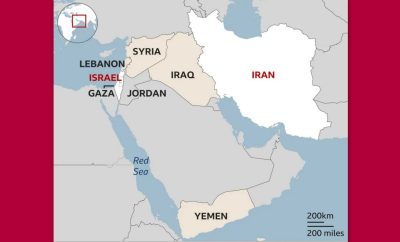
What Now?
In his introductory essay for Volume 4, Issue 1 of TNSR, the chair of our editorial board, Frank Gavin, looks ahead at the future of American grand strategy and the challenges the new administration will face in crafting it.
A painful confession: I have never defeated my 12-year-old daughter Olivia at a board game. Chess, Catan, Go, Ticket to Ride, Mancala — it doesn’t matter the game or the circumstances, she wins, often easily. Obviously, I love her to pieces, and she is clearly brilliant. At this point, however, it is simply embarrassing for me. Over Thanksgiving, as the family played an especially high-stakes round of Harry Potter Clue, I thought I finally had her. Just before I was about to (correctly) guess the place, weapon, and criminal, she struck first and beat me to the punch. Later, seeing me glum, she said. “Dad, I really considered letting you win. But in the end, I couldn’t. You see, I have a reputation to maintain.” Great powers don’t like to lose. Family games, like world politics, are what international relations theorists call a “self-help” world: They do not allow for charity — even for dad.
Or do they? Over Christmas, we played a new game, Ravine. The players find themselves stranded on an island after a plane crash and the goal is to avoid madness and endure the horrors of the wild until they are rescued. Similar to the world described by certain schools of international relations, the goal is survival and the environment anarchical. Yet, the chances for staying alive increase when the players cooperate. At one point, Olivia strategically shared tools she could have horded in order to keep me alive. This was no act of kindness or even quid pro quo, nor was there any hierarchical institution, just strategic calculation. Helping me benefitted her. Later in the game, I deployed my assets to protect her, because I had gained as well. We both survived.
This volume of the Texas National Security Review is entitled “Something old, something new.” What might be thought of as old issues — counter-insurgency, the security dilemma, cyber operations, naval strategy, information diplomacy, and the militarization of domestic police — ought, according to the authors in this outstanding issue, to be understood and assessed through new analytical lenses, appropriate to the world of 2021 and beyond. A theme running through each article is the need for scholars and policymakers to make sense of which aspects of our world are similar to the past, which are profoundly different, how these old and new factors interact, and how to develop smart policies to successfully navigate threats and opportunities.
Are contemporary international relations more like the “every family member for themselves” world of Clue, a zero-sum battle where the most ruthless wins and deception is rewarded? Or is it more like Ravine, where self-interested coordination, information sharing, and cooperation generate better, Pareto optimal outcomes? And are the challenges confronting the United States old, new, or an uncertain mix of both?
Συνέχεια ανάγνωσης εδώ
Πηγή: tnsr.org




